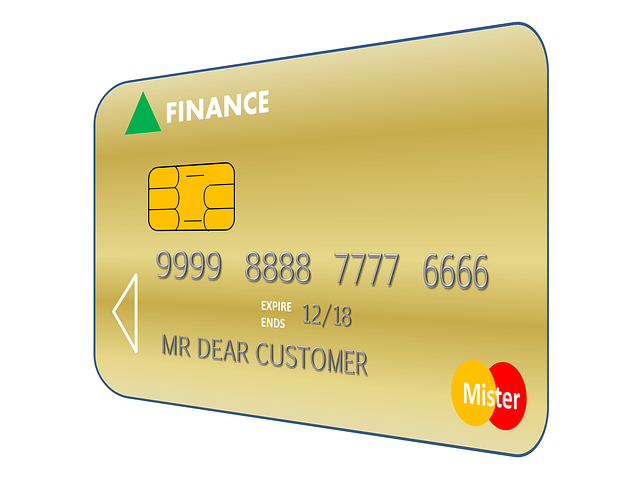Before negotiating with lenders for debt consolidation loans with flexible terms, assess your financial standing by evaluating existing debts and conditions. Conduct market research on diverse lenders' offers to find tailored options. Understand the impact of your credit score on loan terms. Create a compelling proposal highlighting financial responsibilities and goals. Explore creative solutions and guarantees to negotiate better terms. Build relationships with lenders for favorable conditions alleviating financial stress.
Negotiating better terms with lenders can seem daunting, but it’s a crucial step towards managing your debt effectively. This guide will empower you to navigate conversations with confidence. First, assess your financial standing and understand how debt consolidation loans impact your credit score. Research market rates to identify competitive offers. Present your case for flexible terms, explore creative solutions benefiting both parties, and build lasting relationships with lenders for future opportunities.
- Understand Your Financial Position Before Negotiation
- Research Market Rates and Lender Offers
- Know Your Credit Score Impact
- Present a Strong Case for Flexible Terms
- Offer Creative Solutions for Mutual Benefit
- Build Long-Term Relationships with Lenders
Understand Your Financial Position Before Negotiation

Before stepping into negotiations with lenders, it’s crucial to have a clear understanding of your financial position. Take time to assess your current debts, interest rates, and payment terms for each. This knowledge will empower you to make informed decisions during negotiations. For instance, if you’re considering debt consolidation loans, compare the flexible terms offered by different lenders to identify options that best suit your needs.
Understanding your financial landscape also helps in prioritizing debt relief options. If high debt payments are a major concern, research and compare debt consolidation lenders based on their ability to fix these issues. By doing so, you can navigate negotiations with confidence, aiming for terms that not only reduce your monthly burdens but also offer a clear path towards managing your debt effectively.
Research Market Rates and Lender Offers

Before negotiating with lenders, it’s crucial to understand the current market rates and what similar offers look like across different providers. This knowledge equips you with a strong reference point during discussions. Research debt consolidation loans and their flexible terms being offered by various institutions, including banks and specialized lenders. Pay attention to interest rates, repayment periods, and any additional fees or conditions.
Additionally, explore options for debt consolidation for bad credit, as many services cater specifically to individuals with less-than-perfect credit scores. This market analysis will help you identify potential savings and the scope for better terms. When considering how to choose a consolidator, look beyond rates; assess their reputation, customer reviews, and transparency in their processes.
Know Your Credit Score Impact

Your credit score plays a pivotal role in shaping the terms offered by lenders when applying for debt consolidation loans or financing debt settlement options. Lenders often use your FICO score (or similar credit rating system) as a primary indicator of financial health and risk. A higher credit score generally means better loan terms, including lower interest rates. This is because lenders perceive borrowers with strong credit as less of a financial risk.
When considering debt consolidation or settlement, understanding how these options can impact your credit score is crucial. While debt settlement might offer quicker relief by negotiating with creditors to pay less, it can also negatively affect your credit. In contrast, debt consolidation loans with flexible terms allow you to maintain a positive payment history, which helps preserve and potentially improve your credit score over time.
Present a Strong Case for Flexible Terms

When negotiating with lenders, presenting a strong case for flexible terms can significantly improve your chances of securing better conditions. Highlighting your financial responsibilities and aspirations is key. Explain how debt consolidation loans with flexible terms could help manage your debts more effectively, offering relief from tight repayment schedules. Emphasize your commitment to repayments but also the need for terms that align with your income and cash flow patterns.
A well-structured proposal that demonstrates your ability to consolidate debts online can be persuasive. Mention any plans for financial growth or improvements in creditworthiness post-debt consolidation, especially if you’re considering low-interest personal loans for debt in the UK despite bad credit. Lenders often appreciate proactive approaches and a clear vision for financial health, which can make your case for flexible terms more compelling.
Offer Creative Solutions for Mutual Benefit

When negotiating with lenders, it’s essential to go beyond traditional offers and explore creative solutions that benefit both parties. Lenders are often open to innovative approaches as they seek to maintain a healthy relationship with borrowers. For instance, if you’re seeking debt consolidation loans, propose a structured repayment plan that aligns with your financial goals. This could involve creating a personalized schedule where you gradually reduce your monthly payments over an extended period, ensuring long-term repayment while easing the lender’s concerns about timely collection.
Consider offering additional security or guarantees to make the deal more attractive. For individuals with bad credit, this might include providing a co-signer or offering collateral that increases the lender’s confidence in repayment. Top-rated debt consolidation companies understand the value of such strategies as they facilitate negotiations for flexible terms, ultimately leading to reduced monthly payments and improved financial management for borrowers.
Build Long-Term Relationships with Lenders

Building strong relationships with lenders can be a game-changer when it comes to securing better terms for your loans, especially in scenarios like debt consolidation. When you have a positive and established connection, lenders are more inclined to work with you and offer flexible options tailored to your needs. This long-term approach allows you to focus on managing your debt effectively rather than solely on immediate repayment concerns.
By fostering these relationships, you can negotiate for lower interest rates, extended repayment periods, and even affordable monthly payments. Non-profit debt help organizations often emphasize this strategy as a way to avoid debt collection calls and the stress associated with overwhelming debt. With a collaborative mindset, lenders and borrowers can create customized solutions, ensuring a more manageable financial journey without the burden of excessive interest or strict timelines.
Negotiating better terms with lenders isn’t just about securing lower interest rates; it’s a strategic conversation that can transform your financial journey. By understanding your position, researching market trends, and presenting compelling cases, you can achieve more favorable conditions for debt consolidation loans. Embracing creativity in solutions fosters mutually beneficial relationships, setting the stage for long-term success and improved access to future financing options.
